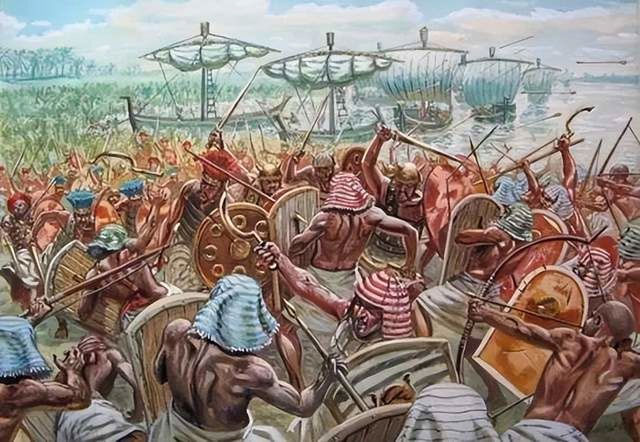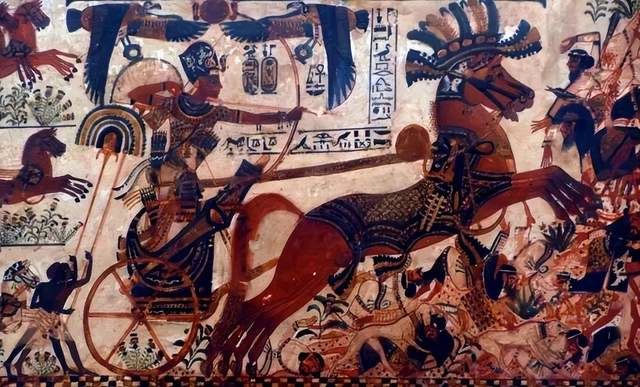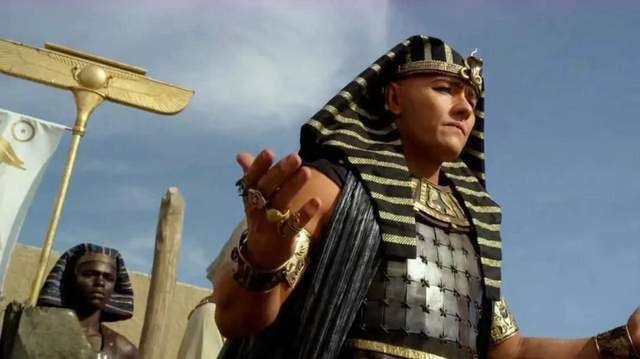Egyptian Pharaoh's Experiment: Without Teaching Babies to Talk, Can They Create New Languages?
According to statistics, there are more than 7,000 languages in the world, when and where these languages originated and how they developed is still a scientific mystery that needs to be solved.
How was language formed? What was the first human language? I believe a lot of people have had this kind of question in their heads and still don't have the answer, or in their hearts don't know the answer for sure. Historically, the ancients also felt curious about this kind of question. Not only that, they also dared to do experiments to answer this question.
According to the "History of Volume II" by the ancient Greek historian Herodotus, about 2,600 years ago, there was a Pharaoh named Psammetichus in the land of ancient Egypt who felt very curious about the world, especially the world. about the origin of language. He always asked the question "what kind of language is the "primitive language" (first language) of the world, and what is the oldest country in the world?
Of course, the Pharaoh had reason to suspect this, finding the answer was to prove the superiority of his country and gain a legitimate claim to dominate other nations.

The ancient Egyptians always believed that their language was the source of human language.
The ancient Egyptians always believed that they were the most ancient of all the peoples of mankind at that time, and that their language was the source of human languages, nations and forces. Other political surroundings are all descendants of the ancient Egyptians. They consider themselves the people with the oldest history in the world, so Pharaoh Psammetichus wanted to prove it.

if you can prove everything
So how to prove it? According to Pharaoh's idea, people used language to distinguish and determine their nationality, as long as it could be proven that ancient Egyptian was the "original language" - that is, the first language in the world. gender. Thus, it can be proved that the ancient Egyptians are the oldest nation in the world, their language is also the first language of mankind and the source of all peoples. This helps a lot to raise their national self-esteem.
In addition, if proven, ancient Egypt could claim that people of other ethnic groups evolved from the ancient Egyptians, and could also claim the legitimacy of the regime. rule over other ethnic groups.
Accordingly, Pharaoh could assert that although people of other ethnic groups no longer speak Egyptian, they are also descendants of the ancient Egyptians, so Pharaoh will have the right to rule them properly. "legal".

Pharaoh Psammetichus conducts the world's first language search experiment.
So to achieve these goals, the pharaoh had to first prove his conjecture correct, so the pharaoh ordered an experiment to begin.
First, they will find two newborn babies, put them in the care of a shepherd in an isolated place, away from the crowd. One of them was supposed to be raised by a woman who had her tongue cut off before.
The shepherd was only allowed to raise these two children, but not to teach them to speak, not to speak in front of them, and not to interact with outsiders, so that they were completely isolated from the outside world in order to make them feel uncomfortable. have access to any human language before they can speak.
In this period, the children had to live in an empty hut, and had shepherds feed them. The shepherd would then monitor their behavior and report it to the Pharaoh as soon as the two children could say anything.
That's because Psammetichus just wanted to know if the first words a child could say without being taught or heard of any language were Ancient Egyptian or not.

This pharaoh believed that the language spoken by children who had not been taught the language was definitely the original language.
Why is that? This pharaoh believes that the language spoken by children who have not been taught any language is definitely the original language, the first language given to man by the gods. If the child speaks Egyptian, surely Egyptian is the oldest language in the world! Accordingly, the Egyptians will be the people with the longest history in the world! This indirectly proves that other countries in the world are all descendants of the ancient Egyptians.
Over time, gradually, the two children grow up together in a world without language, they eat and sleep together and play together. A few years later, the two children were growing and walking, but they could not speak, until one day when the shepherd opened the door to feed the two children, both children ran towards him with open arms and shouted: "Bekos" (βεκόϛ).

A few years later, the child grew up, the first sentence he said was: "Bekos" (βεκόϛ).
Hearing the children's first words, the shepherd immediately reported the incident and swore that he had never spoken to the two children, nor exposed them to any other language. any other language.
Psammetichus, when he heard about this, was overjoyed and asked the shepherd to bring the two children to him so that he could hear the words they were saying with his own ears. And the main goal is to find out what the word "bekos" (βεκόϛ) means, what language it belongs to and where exactly it came from.

Linguists at that time had to search day and night from ancient books and search for prophecies of different peoples.
In the end, the efforts paid off. But this result disappointed the Egyptian pharaoh, because the experiment did not prove that the language of his people was the origin of the human language, but proved that the words the two children spoke meant " bread" and Phrygian language is the oldest primitive language of man, at least according to the idea of this Pharaoh.

This Pharaoh's experiment is completely wrong because language cannot be born naturally.
However, from the point of view of modern science and linguistics, the experiment of Pharaoh and his view is completely wrong, because language cannot be born naturally. The creation of language requires people to live in groups, it also requires a long process of evolution and accumulation.
If a child is only raised in a silent environment from the moment he is born, even if he has companions, he cannot create a new language!.
- The ship brought Egyptian pharaohs to the afterlife
- Smart robot teaches foreign languages to students in Dong Nai
- Videos teaching babies to swim touch emotions
- Six mysterious archaeologists died after opening the ancient Egyptian coffin
- Why did the Egyptian pharaohs stop building pyramids?
- Egyptian Pharaoh and deadly curse
- Feminism in ancient Egypt
- Children who hear foreign languages early will learn languages faster
- Valley of Egyptian kings
- What's in the tombs of the pharaohs?
- Egypt reveals the tomb ruins of nearly 4,000 years old
- Why do countries have different languages?
 The most famous scientific failures in history
The most famous scientific failures in history Mysterious genius mechanic and the machine froze time
Mysterious genius mechanic and the machine froze time The son carries the 'bad gene' of genius Albert Einstein
The son carries the 'bad gene' of genius Albert Einstein Isaac Newton
Isaac Newton